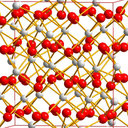Isoquercitrin inhibits bladder cancer progression in vivo and in vitro by regulating the PI3K/Akt and PKC signaling pathways.
Klíčová slova
Abstraktní
Bladder cancer is the most common malignancy of the urinary system and is also one of the 10 most common cancers of the human body. Currently, clinical treatment of bladder cancer mainly utilizes partial or total cystectomy, supplemented by conventional chemotherapy. However, such treatment has not fully improved the prognosis of patients and is associated with various side effects. Studies have found that flavonoids extracted from plants can be used in radiotherapy and chemotherapy for the prevention of postoperative recurrence and metastasis but also alone for the treatment of advanced tumors. Both applications can ameliorate clinical symptoms, improve the quality of life, and prolong the survival of patients. Based on the above information, the present study investigated the effect of isoquercitrin, a type of flavonoid found in Bidens pilosa L. extracts, on bladder cancer progression, with the goal of understanding the biological characteristics of isoquercitrin by which it participates in bladder cancer progression. Using in vitro experiments, we found that therapeutic doses of isoquercitrin significantly inhibited cell proliferation and induced apoptosis in human bladder cancer cells and that the cell cycle was arrested in the G1 phase. Isoquercitrin inhibited phosphatidylinositol 3-kinase (PI3K) and Akt phosphorylation expression levels, thus inhibiting proliferation and inducing apoptosis in the cancer cells. In addition, we found that isoquercitrin reduced protein kinase C (PKC) protein expression levels in the human bladder cancer cell lines. We also showed via in vivo experiments that isoquercitrin inhibited xenograft tumor growth in nude mice. In conclusion, our study confirmed that isoquercitrin inhibits bladder cancer progression in vivo and demonstrated that the molecular mechanism of this inhibition may be closely associated with the PI3K/Akt and PKC signaling pathways.





